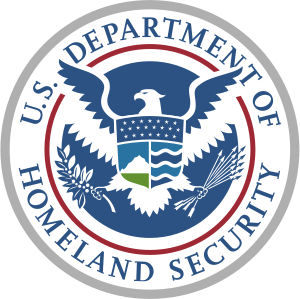
- Image via Wikipedia
“Those who would sacrifice liberty for security deserve neither.” – Benjamin Franklin
The First Amendment guarantees freedom of the press, as well as freedom of speech. In New York Times vs. the United States(1970), the Supreme Court permitted the Times to publish the Pentagon Papers, which were certainly damaging to the government.
Last night, agents of the Transportation Security Administration visited the homes of two aviation bloggers: Steven Frischling(pictured here), of the popular Flying with Fish blog, and Christopher Elliott, syndicated travel journalist and blogger.
We have the pleasure of having communicated with both of them many times, have cited their work and opinions in our own, and are part of the same online aviation community, a rather open and welcoming group of enthusiasts.
The TSA agents were there seeking information about TSA Security Directive SD-1544-09-06 that both bloggers had posted on their sites, and that we cited in our own comments on the subject. They wanted to know who had given this information to the two.
As of tonight, the story has even hit the New York Times. Elliott’s story begins here, where they demanded in a subpoena that he deliver all documents, emails, and/or faxes concerning his receipt of the security directive. Elliott called his lawyer. After that, he called Fish to ask if he’d received the same treatment. Shortly after that call, he received his own visit.
The TSA searched through all of Fish’s electronics, and ultimately, with his consent(not that he had a choice specifically, as they threatened to seize everything if he didn’t), seized his laptop to copy the content of the drive. He admitted he didn’t actually know who sent him the directive. Apparently, his laptop came back somewhat worse for wear as well.
For bloggers, this is a Freedom of the Press issue. Both bloggers, who unlike many of us, do have professional press credentials(Frishling/Fish has worked as a photojournalist, Chris Elliott is currently employed as a syndicated journalist). Are bloggers protected as journalists? Do shield laws, designed to protect journalists from revealing confidential sources, apply to bloggers? Either way, the majority of states have these laws, but the federal government does not, and blogging can transcend state and national boundaries. Laws need to be rewritten or expanded to include this newer type of journalism.
These two, and the many people who linked to them with their comments, were doing the job the TSA failed to do. A major incident occurred, and the TSA, and its parent, the DHS, failed to keep the public informed. They were vague and brief in their statements. Airlines were giving out more information on the TSA’s security measures than the TSA itself.
The whole situation, and the TSA’s response to the incident on December 25th, have sparked a new Twitter hashtag, #tsafail, and a lot of anger by the online community at these actions. It was as foolish as the directive itself. Everything the TSA has done in the last week has been a series of misjudgements.
In all fairness, not everyone agrees, Chris Fotos, web managing editor for Aviation Week, sided with the TSA in his blog, Things With Wings. Not specifically on the choice to distribute the document by the bloggers, but the TSA taking it seriously. The directive limits dissemination of itself to the defined sources. Their interest is finding someone who leaked the information in violation of the law. Our response to that has been clear so far in this post: If the TSA had done its job in informing the public, then the full directive wouldn’t have needed to be posted online.
To the two bloggers in question, we continue to provide our support, and we are not alone in that. For the Department of Homeland Security, you know you are doing something wrong if the Canadian press is calling for the resignation of your chief administrator. And for the Transportation Security Administration, we respect the job you are trying to do, but remember that the majority of us are not criminals or terrorists. To treat us as such in an attempt to protect us from those are devalues not only the system, but us as well.
Related articles by Zemanta
- The chilling effect: TSA tries to plug a leak by slapping travel bloggers with subpoenas (upgradetravelbetter.com)
- The Firestorm Continues – Security Screening in the US (flightwisdom.com)